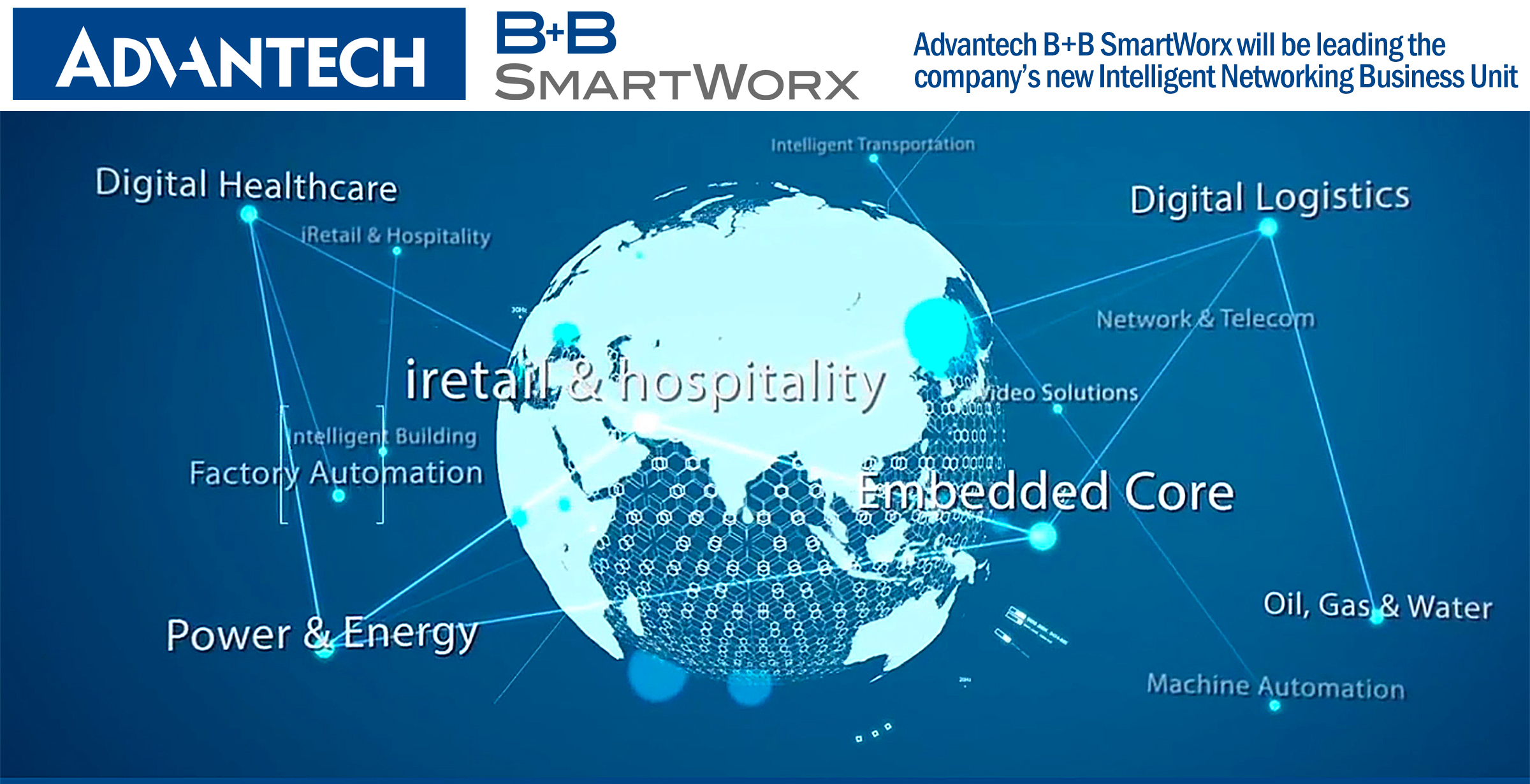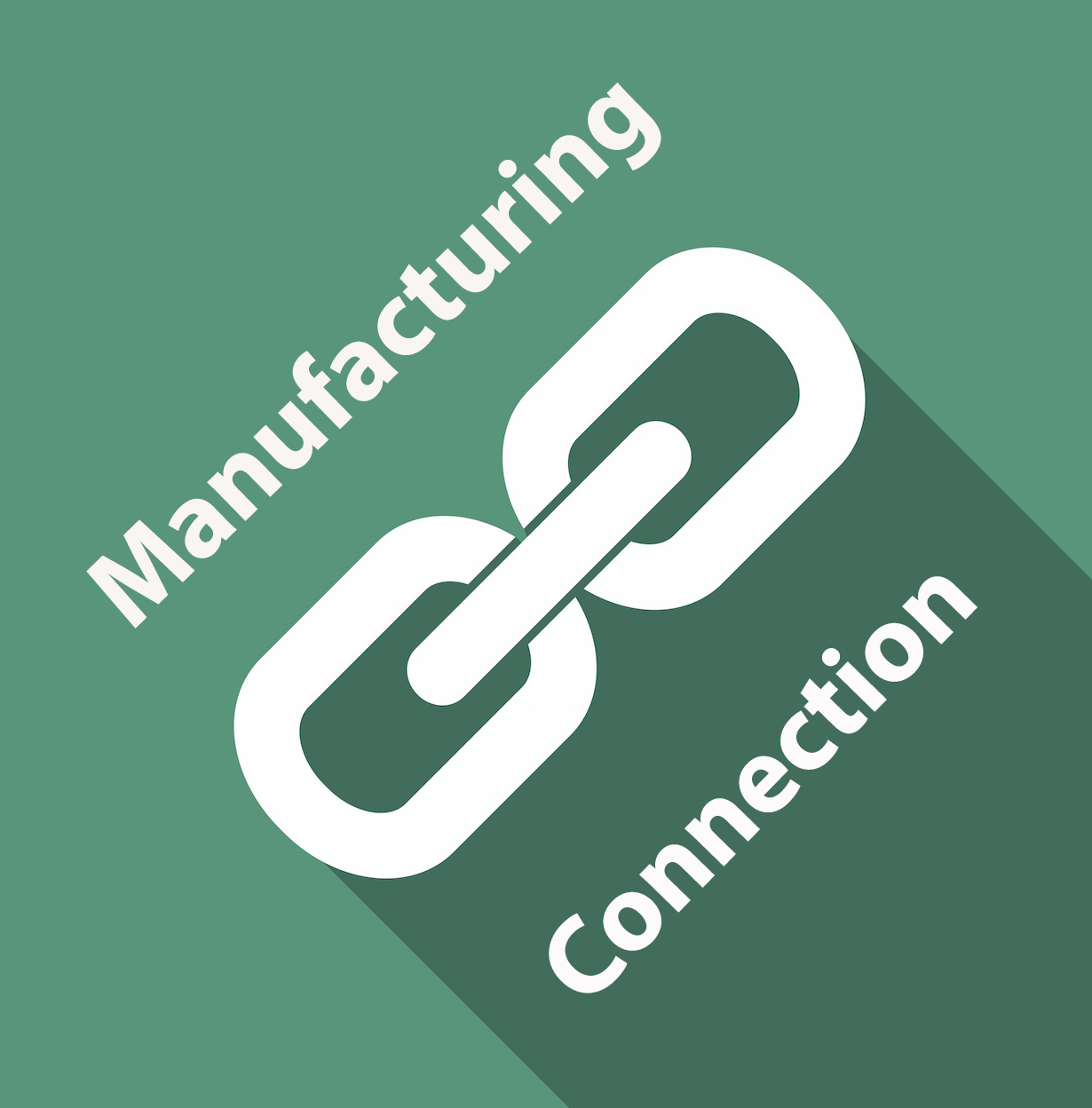
by Gary Mintchell | Jan 12, 2016 | Automation, Internet of Things, Networking, News, Operations Management
 Business around the Industrial Internet of Things must be maturing. I just received news of another acquisition. In the case, the acquired company has also been changing itself in response to changing landscape of industrial networking. The Advantech CEO called this a merger, but I think that’s a bit disingenuous. When a $1.2 billion company and a $0.1 billion company come together, well, you can see the picture.
Business around the Industrial Internet of Things must be maturing. I just received news of another acquisition. In the case, the acquired company has also been changing itself in response to changing landscape of industrial networking. The Advantech CEO called this a merger, but I think that’s a bit disingenuous. When a $1.2 billion company and a $0.1 billion company come together, well, you can see the picture.
Taiwanese industrial computing manufacturer Advantech announced the completion of its acquisition of privately-held industrial intelligent networking specialist B+B SmartWorx for the US$99.85 million agreement announced November 16.
Ottawa, IL-based B+B will continue to be led by its current management team, operating as Advantech B+B SmartWorx, and will lead Advantech’s new Intelligent Networking Business Sector in developing smart networking products as part of the company’s Global Industrial IoT Business Group.
The two companies’ complementary product lines brought them together often over the last decade to collaborate on industrial connectivity projects, so the combination of the two companies felt natural. The merger creates a $1.3 billion company with approximately 7,600 employees worldwide.
“B+B has undergone a transformation over recent years, acquiring several companies itself and developing technologies that bring ‘intelligence to the network edge’ to address evolving needs in the Industrial IoT (IIoT) market,” said B+B CEO Jerry O’Gorman. “We are pleased to join forces with Advantech, a global leader who shares our strategic view of the future.”
With B+B SmartWorx now a part of its portfolio, Advantech said it aims to accelerate its growth in industrial network connectivity-related products. The company will leverage B+B’s established branding, product lines, engineering teams and sales channels in the U.S., Europe and the Middle East, and it will also begin selling B+B’s device connectivity products, cellular routers, gateways and the Wzzard wireless sensing platform into Asia. Products will retain B+B branding, bolstered by Advantech’s name recognition, and sold as “B+B SmartWorx powered by Advantech.”
Advantech chairman KC Liu explained that Advantech views this acquisition more as a merger, seeing value in all of B+B’s networking products from wired networking and fiber infrastructure to wireless connectivity. “B+B has in particular struck a nerve with its Wzzard wireless sensing system which satisfies enterprise IT’s desire to receive data from the field, and overcomes field OT’s (operational technology) fear of disruption, by creating ‘overlay networks’ that leave existing programming, processes and people in place,” said Liu.
B+B’s Wzzard together with its routers and gateways complement Advantech’s own WISE wireless sensing platform, and company engineers will be developing solutions leveraging the strength of both platforms.

by Gary Mintchell | Dec 8, 2015 | Automation, Marketing
One of my new favorite tech news sites is The Information. It’s a subscription email newsletter/Website founded by Jessica Lessin. (Interestingly my other favorite is Pando, also founded by a woman–Sarah Lacy.)
Jessica’s husband, Sam, wrote a post with a provocative thought this week, The Good Enough Stuff Revolution.
He asks, “Are Harry’s or Dollar Shave Club razors better than Gillette? What about Honest Co. soap versus Dial soap? I have no idea, and I don’t have any interest in figuring it out. They are good enough and generally easier to buy, and so they win.
“There is, in my mind, a major revolution underway in most consumer hard and soft goods which I call the Good Enough Stuff revolution. As a result, most traditional brands sold through traditional retail avenues are going to struggle to find a foothold in this new world.”
This leads to the provocative idea, “The thing to understand is that Good Enough products aren’t purely commodities racing to the bottom. They are a class of products where the end-to-end experience of selection, purchasing and customer service is more important than the product itself.”
Good enough Industrial Products?
What do you buy? Of course there are many classes of industrial products. Large assets, smaller assets, control components, MRO.
Which of these do you buy because of the end-to-end customer experience rather than diligently searching out best-in-class or merely price?
There are lots of PLCs available, for instance. You could get a smaller one and buy on price. You could go to AutomationDirect and buy direct over the Web (not unlike Amazon). You could buy where there is a strong distributor relationship. You could go with the “new kid on the block”–Bedrock Automation–and go for the added feature of built-in security.
Have you changed buying habits over the past 10 years or so? Do you think you could change buying habits? Where would you draw the line on size of equipment??
More important, perhaps, would be the question–should I be considering how I purchase and re-evaluate the entire process.
Thoughts welcome.

by Gary Mintchell | Dec 7, 2015 | News
This is interesting news. I’ve noticed GE doing much reorganizing around the former automation businesses. I actually thought Bernie Anger was going off in a different direction–perhaps with the software group. Instead, he’s leading the embedded computing business (the old SBS and VMIC businesses, if you remember way back when) off on its own.
For some time, marketing in the old GE Fanuc, now GE Intelligent Platforms, business has become quite differentiated. They’ve tried some agencies for PR. But the software side (including the Cimplicity and Intellution businesses which “merged” into Proficy) are seemingly subsumed into the huge investment GE is making corporately in software–note the ads it is running on TV recently. I never know what to call the division, group, or name when I write about it.
Here is the press release regarding the divestiture.
Abaco Systems, an industry-leading supplier of sophisticated, open architecture electronic systems for aerospace, defense and industrial applications, today announced its separation from the General Electric Company (“GE”), opening a new chapter in the company’s history.
“This is a momentous day for Abaco Systems,” said Bernie Anger, president and CEO of Abaco Systems. “Today, we start the next stage in our company’s future – pursuing a strategy focused on satisfying the needs of customers looking for high-performance embedded technology and systems that can withstand the harshest of conditions. I am very proud of our team who has prepared us for this day, and extremely thankful for the support that we have received from our customers during the transition process.”
“As an independent embedded technology and systems company,” continued Anger, “we see real opportunity to take our extensive experience, mission-critical technology and the repeatable business processes we have developed to continue building a business that combines a commitment to technical innovation with extreme focus on customer service. The company is positioned to benefit from long-term market trends, including shifts towards open architecture, interoperable systems, smarter purchasing initiatives and technological modernization.”
Customers have been notified of the change in ownership and have welcomed the news of the new Abaco Systems. Feedback from customers has been extremely positive:
“Thanks for letting us know about the GE transition to Abaco Systems,” said Rance Myers, Director of Engineering at Honeywell Aerospace. “We’re looking forward to the continued relationship and working with Abaco as we progress forward on new projects.”
“SNC is a long-time customer of the GE team and is very excited that they are moving to this new phase in their business,” said Greg Cox, Vice President, CNS at Sierra Nevada Corporation. “It demonstrates the strength of this cohesive team and we look forward to working with them in their new structure.”
Veritas Capital, a leading private equity firm that invests in companies that provide critical products and services to government and commercial customers worldwide, acquired Abaco Systems from GE. One customer noted the strength of the Veritas reputation:
“My staff was particularly pleased that Veritas acquired GE’s embedded computing business, because Veritas apparently has such an ‘active’ interest in the GE products,” said Dr. Mark Gaertner, Manager, Bomber Programs, Northrop Grumman Corporation. “That’s good for NGC and the USAF, because we need stability in our products and suppliers for programs that stretch out over the next 25+ years. We look forward to continuing our relationship.”
“The good news for our customers is that, from day one, it is business as usual,” concluded Anger. “They will continue to deal with the people they have always dealt with, re-energized by an opportunity to really make a difference.”
Abaco Systems is a global leader in open architecture computing and electronic systems for aerospace, defense and industrial applications. Spun out of General Electric in 2015, we deliver and support open modular solutions developed to upgrade and enhance the growing data, analytics, communications and sensor processing capabilities of our target applications. This, together with our 700+ professionals’ unwavering focus on our customers’ success, reduces program cost and risk, allows technology insertion with affordable readiness and enables platforms to successfully reach deployment sooner and with a lower total cost of ownership. With an active presence in a significant number of national asset platforms on land, sea and in the air, Abaco Systems is trusted where it matters most.

by Gary Mintchell | Oct 19, 2015 | News
Many years ago I read a book about the stock market. It poked fun at the news reports that would go—there is a wave of selling. Hmm, for every seller there is a buyer. Someone bought all the shares being sold.
I bring that up just as a note about economics (and maybe life in general). Some things are good and bad simultaneously.
Take the strength of the dollar. American nationalists think that a strong dollar means a strong nation, or that we “won” some contest. However, for manufacturers and other suppliers looking to sell overseas a strong dollar makes our products more expensive and therefore less competitive.
The latest PwC US Manufacturing Barometer just came my way. It states, “Sentiment regarding the direction of the global economy took a sharp turn downward among U.S. industrial manufacturers, according to the Q3 2015 Manufacturing Barometer, released by PwC US today. Global concerns also served to moderate optimism regarding the domestic outlook, while slowing plans to hire more workers. At the same time, capital and operational spending forecasts among U.S. companies remained healthy.”
Details:
During the third quarter of 2015, optimism regarding the direction of the global economy dropped to 23 percent from 38 percent in the previous quarter and 30 percent in the third quarter of 2014. In addition, pessimism rose to an equal level with optimism (23 percent), reflecting an uncertain outlook for international commerce. Further, 40 percent of respondents indicated they believed the world economy was declining, showing greater concern than in the previous quarter (25% in Q2).
Conversely, optimism regarding the U.S. economic outlook remained positive but dropped to 60 percent in the third quarter of 2015 from 69 percent in the second quarter. Despite the renewed sense of caution regarding the global stage, company revenue forecasts for the next 12 months rose to a moderately high 5.3 percent in the third quarter, compared to a forecast of 4.9 percent in the second quarter.
“U.S. industrial manufacturers became increasingly cautious on the outlook for the global environment as they assessed the impact of the slowdown in China and the strengthening dollar,” said Bobby Bono, PwC’s U.S. industrial manufacturing leader. “Despite the downward turn in overseas sentiment, overall domestic growth prospects remained healthy and manufacturers continue to focus on further strengthening core products and services. They are keeping their cash at home and directing investment toward enhancing their value propositions in an effort to remain competitive and drive future revenues.”
As a result of the decline in global sentiment, U.S. industrial manufacturers scaled back hiring plans in the third quarter, with only 37 percent planning to add employees to their workforce over the next 12 months, down 15 points from the 52 percent level indicated in both the second-quarter and year ago comparable period. The total net workforce growth projection in the third quarter was minus 0.2 percent, indicating further cutbacks in hiring among industrial manufacturing firms.
Among the minority of panelists planning to hire within the next 12 months, the most sought-after employees will be blue collar/skilled labor (23 percent) and professionals/technicians (25 percent). Limited white collar support, middle management and sales/marketing hiring is planned. “The drop in hiring plans may indicate an expectation for slower growth in the near future,” Bono added. “Management teams will likely intensify avenues to improve productivity across their organizations, while continuing to search for professionals with strong technical skills.”
Despite the tempered global outlook, 37 percent of U.S. industrial manufacturers surveyed plan major new investments of capital during the next 12 months, up slightly from the second quarter and same period last year. In addition, the mean investment as a percentage of total sales was a moderately high 5.6 percent, well above 3.3 percent in the second quarter and on par with 5.7 percent in last year’s third quarter. Operational spending plans remained healthy as well with 82 percent indicating plans to increase operational spending, up from 75 percent in the second quarter and 69 percent last year. Leading increased expenditures were new product or service introductions (48 percent), research and development (37 percent), business acquisitions (23 percent) and information technology (22 percent).
“In the face of global uncertainty and the impact of a strengthening U.S. currency, management teams continue to focus investment on developing new products and driving innovation in an effort to sustain and build market share,” Bono added. “Companies are doubling down on what they do best and aggressively building their competitive moats. At the same time, they are continuing to pull back from overseas expansion, with only five percent indicating plans to open facilities abroad.”
Looking at perceived barriers to entry, monetary exchange rate became the leading headwind to growth over the next 12 months, as indicated by 38 percent of respondents. A year ago, it was only 14 percent (24 points lower). Typical barriers to growth—lack of demand (32 percent) and legislative/regulatory pressures (25 percent)—were lower as monetary exchange rate took center stage.
PwC also surveyed respondents on investment in information technology, and found that 80 percent of manufacturers report having a multiyear plan (3-5 years) that addresses business capabilities and processes as well as IT systems. Industrial manufacturing companies’ IT investments are made primarily to reduce costs (84 percent) and support growth (72 percent). Overall, 90 percent are planning to invest in IT technologies over the next 12-18 months, with upgrading infrastructure the leader at 82 percent.
About the Manufacturing Barometer
PwC’s Manufacturing Barometer is a quarterly survey based on interviews with 60 senior executives of large, multinational U.S. industrial manufacturing companies about their current business performance, the state of the economy and their expectations for growth over the next 12 months. This survey summarizes the results for Q3 2015 and was conducted from June 24, 2015 to September 28, 2015.

by Gary Mintchell | Oct 9, 2015 | Marketing
If I haven’t seemed my usual prolific self, business has gotten in the way. Next week I’ll be at Emerson Exchange and life will start getting back to normal.
We constructed this Website to support advertising, but I decided not to directly sell advertising. That despite the fact that page views and click throughs are not bad relative to other sites.
All of a sudden, I got swamped.
Part of my work (hint) is individual research and analysis of pieces of the market. People seem to like my analytical capabilities. I have a couple of contracts that have kept me busy.
My long-time part-time job is assigning soccer referees to high school contests. This year has seen more changes and problems than ever before. I’ve always dealt with sportsmanship issues, but this past week has just about seen a record.
I also work with companies on various aspects of marketing–social media, inbound ideas, messaging, focus points (another hint). Some of that picked up.
Finally, I began to do a little angel investing. One of my investments needed marketing help–so, there I am learning the consumer side of Facebook for marketing. Check out High Grounds Cafe on Facebook.
Looking forward to some good industry news from Denver next week. Maybe I can try stirring up something that I didn’t from Sacramento a couple of weeks ago. I also have a pile of stuff to digest, analyze and report on. Coming soon!
Have a great fall weekend (or spring for my Brazilian friends).

 Business around the Industrial Internet of Things must be maturing. I just received news of another acquisition. In the case, the acquired company has also been changing itself in response to changing landscape of industrial networking. The Advantech CEO called this a merger, but I think that’s a bit disingenuous. When a $1.2 billion company and a $0.1 billion company come together, well, you can see the picture.
Business around the Industrial Internet of Things must be maturing. I just received news of another acquisition. In the case, the acquired company has also been changing itself in response to changing landscape of industrial networking. The Advantech CEO called this a merger, but I think that’s a bit disingenuous. When a $1.2 billion company and a $0.1 billion company come together, well, you can see the picture.






